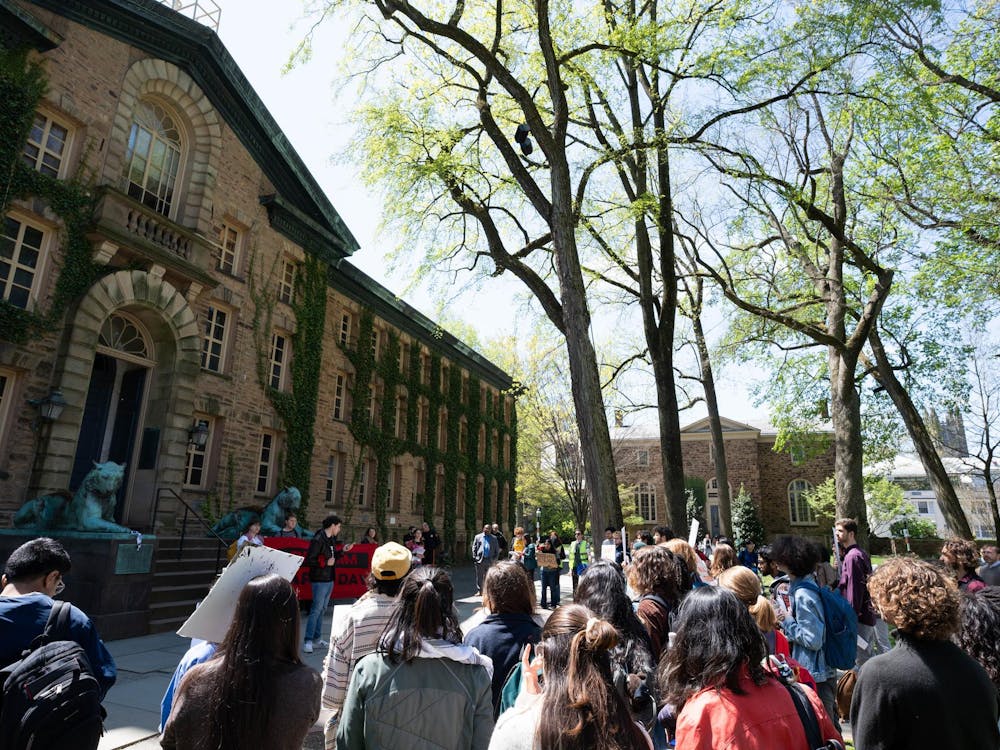The computer science department recently announced that this spring's introductory computer science course, COS 126, will offer two precepts for novice students with little or no computer science background. Instead of the usual 50-minute precept length, these beginner precepts will be 80 minutes long, "giving time to complete precept exercises and answer basic questions." The Editorial Board strongly endorses this innovation and recommends that this precept model be implemented on a broader scale across University departments, specifically in introductory-level courses with non-evaluative precepts.
There are good reasons for widely implementing this precept structure. No matter the 100- or 200-level course, there will always be students in a class with varying levels of exposure to the material presented. It is far easier for students with little to no exposure to fall behind (due to the rapid nature, short lecture lengths and infrequent exams of University classes), and these students should not be penalized for a lack of background knowledge. With longer precepts, brevity and speed will no longer be additional obstacles. Creating precepts of longer length would allow students with little or no background in a class’s material to ask more questions to gain additional reinforcement of class concepts. Given that most students in these precepts would be at the same beginning level, students would need not fear slowing the precept down or asking “stupid questions,” allowing for more thorough and gradual understanding across the precept. The implementation of these precepts will also promote intellectual curiosity as a whole; students will be reassured of additional academic support should they choose to venture outside their academic comfort zones and try something completely new.
However, the Board realizes that the additional precepts are not practical nor necessary for every course on campus, so we offer some criteria. First, these precepts should only be implemented in introductory-level classes. If a course has prerequisites, students in the course all must have at least that background exposure, rendering beginner precepts unnecessary. Moreover, these precepts only work in classes with non-evaluative precepts; the structure works best in class-based sections where discussion and participation are not graded, preventing more advanced students from joining a beginner precept and monopolizing discussion in order to achieve a higher grade. Based on these criteria, courses like ECO 100: Introduction to Microeconomics and ECO 101: Introduction to Macroeconomics would be well-suited for adding these longer precepts, while ECO 310: Microeconomic Theory (with ECO 100 as a prerequisite) and HIS 383: The United States, 1920-1974 (with graded precept participation) would not.
As for the precepts themselves, the material covered should be the same as in the shorter, standard precepts. This works both ways: First, students in the precept can guarantee that they will not be receiving a more basic version of the material; the entire purpose of longer precepts is so that students can learn the same knowledge, just at a slower pace. Furthermore, these precepts should not cover additional problems or material over that of all other precepts. There should be no advantage provided to students in a longer precept other than from the additional 30 minutes of asking questions and working through standard precept problems at a more gradual pace. Providing extra practice problems or previewing new material would be unfair.
Again, the Board lauds the computer science department for recognizing the diversity of students in COS 126 and catering to their various needs by introducing longer, novice-oriented precepts. Consequently, we suggest a wider implementation of this precept structure across departments. These precepts would greatly benefit the learning experience at Princeton, especially for students looking to engage in new academic territories.
TheEditorial Boardis an independent body and decides its opinionsseparately from the regular staff and editors of the ‘Prince.’ The Board answers only to its chair, the opinion editor and the editor-in-chief.








